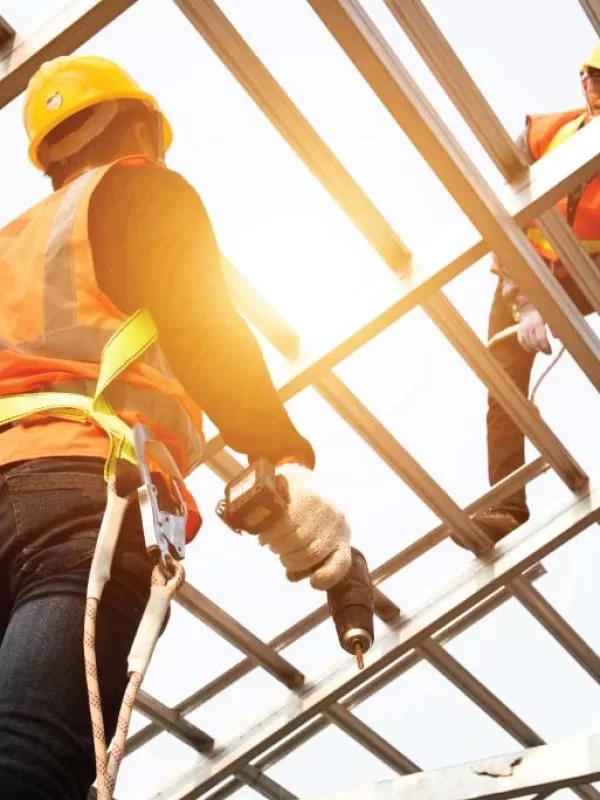Roof fabrication services play a pivotal role in modern construction, offering solutions that blend durability, aesthetics, and technological advancement. This article delves into the nuances of roof fabrication, highlighting its importance, processes, materials, and benefits in contemporary architecture.
Introduction to Roof Fabrication
Roof fabrication refers to the process of constructing roof systems, typically involving the cutting, shaping, and assembling of materials to create roofs that are not only structurally sound but also aesthetically pleasing. This service is crucial in both residential and commercial construction, protecting environmental elements while contributing to the building’s overall design.
Materials and Techniques in Roof Fabrication
Materials Used
Metal: Popular for its durability and resistance to extreme weather. Common metals include steel, aluminium, and copper.
Polymers and Composites: These are lightweight and offer flexibility in design.
Glass and Transparent Materials: Used in modern designs for natural lighting and aesthetic appeal.
Wood and Bamboo: Offer a natural, sustainable option, popular in eco-friendly constructions.
Fabrication Techniques
Cutting and Shaping: Precision cutting tools and techniques are used to shape materials to specific dimensions.
Welding and Joining: Ensuring strong joints that can withstand environmental stress.
Coating and Finishing: Applying protective layers for durability and aesthetic enhancement.
Design Considerations in Roof Fabrication
Architectural Style: The roof design should complement the architectural style of the building.
Environmental Factors: Consideration of local weather patterns, wind loads, and insulation requirements.
Energy Efficiency: Incorporating elements like reflective coatings or integrating solar panels.
Sustainability: Using recyclable materials and eco-friendly processes.
Benefits of Professional Roof Fabrication
Customization: Ability to tailor roof designs to specific architectural requirements and personal preferences.
Durability and Longevity: The use of high-quality materials and techniques ensures a long-lasting roof.
Energy Efficiency: Professionally fabricated roofs can contribute to reduced energy costs through better insulation and energy-efficient materials.
Aesthetic Appeal: Enhances the overall look of the building, increasing its market value.
The Process of Roof Fabrication
Consultation and Design: Collaboration with architects and clients to determine the best design and materials.
Material Selection: Choosing materials based on the design, budget, and environmental considerations.
Fabrication: The actual process of cutting, shaping, and assembling the roof components.
Installation: Professional installation is crucial for the roof’s performance and longevity.
Quality Assurance and Testing: Ensuring the roof meets all safety and quality standards.
Innovations in Roof Fabrication
The roof fabrication industry is continuously evolving, with innovations such as
Integrated Solar Roofs: Where solar panels are seamlessly incorporated into the roof design.
Green Roofing Systems: Supporting plant life, contributing to biodiversity, and improving insulation.
Smart Roofing: Utilizing sensors and materials that adapt to environmental changes.
Challenges in Roof Fabrication
Despite its many benefits, roof fabrication faces challenges like
Cost: High-quality materials and custom designs can be expensive.
Technical Complexity: Requires skilled professionals and precise engineering.
Sustainability Concerns: Balancing ecological impact with durability and performance.
The Future of Roof Fabrication
The future of roof fabrication lies in sustainable practices, technological integration, and innovative materials. The industry is moving towards more eco-friendly solutions, smart roofing technologies, and designs that cater to the evolving needs of modern architecture.
Conclusion
Roof fabrication services protect, enhance, and add value to buildings. As technology advances, these services are becoming more sophisticated, integrating sustainability and functionality in designs. Whether it’s a residential home or a commercial building, the right roof fabrication can make a significant difference in both aesthetics and performance, epitomizing the art and science of modern construction are an essential aspect of the construction industry, offering solutions.



